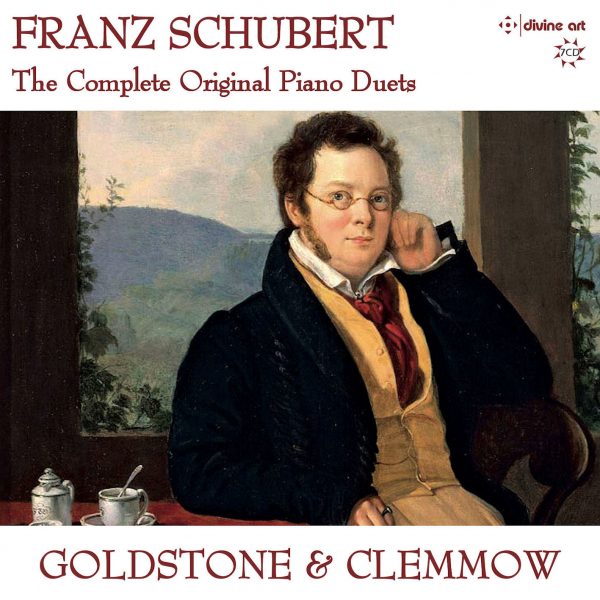Fanfare
For a composer of such fame as Schubert’s, it is a surprisingly little-known aspect of his career that he was a life-long (short as it was) and prolific writer of music for piano four hands. In a way, the situation reflects the way most of the music loving public views the rest of Schubert’s output; the bulk of the music of his that is recorded and heard live comes from the last few years of his life, when his musical language became burnished and deepened by an accretion of personal sorrow. There is some late Schubert in the piano four hand repertoire, notably, the great Fantasie in F Minor, but the majority of this material derives from a happier place in the composer’s life, beginning with his earliest surviving music, also a Fantasie, as ironic poetry would have it, penned by a 13-year-old genius. Such gemütlich material might not whet the appetite of those Schubert lovers who favor the wretched beauty of something such as Winterriese, but there is much angst-free loveliness to luxuriate in here.
What is remarkable about this piano music is the variety of style and form that is employed. There are a number of selections that are cast in Classical forms, including several sonatas, rondos, marches, and overtures. Within that context, Schubert’s characteristic harmonic imagination points forward, even in the early work. Schubert also seemed to have an ear for musical inspiration to his geographic east, as heard in a number of polonaises and a Hungarian “Divertissement.” He also composed a piano four hand Grand Funeral March on the occasion of the death of Tsar Alexander the First and, subsequently, a Grand Heroic March to celebrate the coronation of Tsar Nicholas the First. German dances and variations on French songs further amplify Schubert’s cosmopolitan outlook.
The profound influence of Schubert’s music on the work of Robert Schumann is well known, but there is a particular relationship involving four hand piano music. In 1828, a teenaged Schumann discovered the Schubert Polonaises that are featured on this set, and was inspired to create his own set of Eight Polonaises for this format, and they are heard here as encores on each of the discs. The music is, not surprisingly, beautifully written, even though the mature voice of the composer is just hinted at. The value of this music is more historical than anything else, a touching tribute to the artistic connection between two giants of music.
Pianists Caroline Clemmow and Anthony Goldstone play this music with elegance and intelligence, and are recorded cleanly and realistically. The program notes are very informative, and the overall production value for the release is top-notch. This is an important addition to the Schubert discography.
@divineartrecordingsgroup
A First Inversion Company
Registered Office:
176-178 Pontefract Road, Cudworth, Barnsley S72 8BE
+44 1226 596703
Fort Worth, TX 76110
+1.682.233.4978












